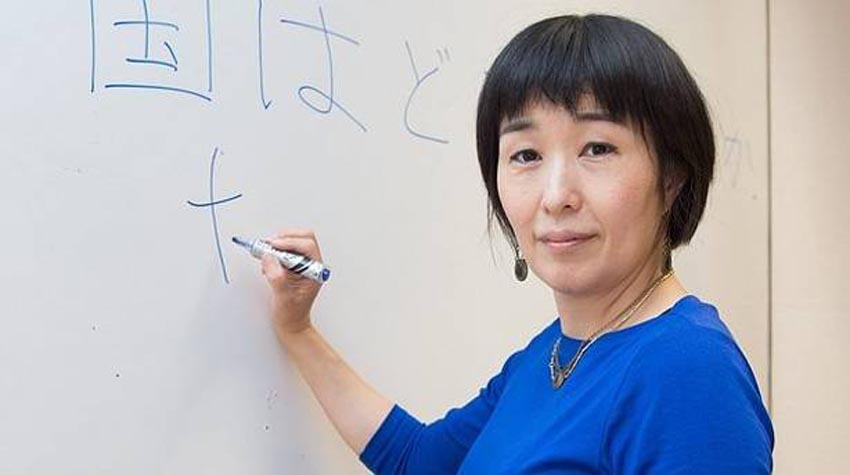Sara Huarte, Iñaki Porto/Iruña-Pamplona. Twenty years ago, Keiko Suzuki left her hometown of Nagoya, Japan to come study in Navarre. Her goal was the University of Navarre where she studied Spanish Philology for a year. Today, she is established in Pamplona, she has two daughters and speaks fluent Basque, which she learned, in part, to better enjoy her favorite pastime, watching pilota on ETB. She has also been a Japanese teacher for the last fifteen years at Pamplona’s language school.
“There is a definite profile among my students. There are some who enroll because they are interested in culture, but others are motivated by work, including some who already dominate languages and who wish to continue learning,” Keiko says with a smile. Because of the devaluation of the Yen in Japan, a curious phenomenon occurred. There are people who took advantage of the situation to travel abroad and to enroll in classes because they wanted to have some basic notion of the language to be able to manage there, or the opposite, people who have been there and are interested in the Japanese culture and so have decided to also learn the language.
Right now, there are 70 students from Navarre enrolled at the EOIP along with those enrolled in Japanese conversation who are immersed in learning this language.
According to Keiko, learning Japanese isn’t harder than learning any other language even though, “you have to get used to the characters, because if you choose learning languages that use the same alphabet than yours, and this is not Japanese's case, it takes less time.” In respect to the pronunciation,” there isn’t a problem because it is like Basque or Spanish. You pronounce it as it is read there are only five vowels.”
Culture is a big part of the classes that Keiko teaches. “It is inevitable to talk about culture in class. The same way that it is inevitable to talk about Halloween in an English class,” Keiko pointed out. In addition, Japanese culture is present in many aspects of western lie, like in cartoons, for example, comics or sushi restaurants that are both more and more successful in Pamplona. “There are people who remember the comics that they would watch when they were little and now they are more interested and have come to learn the language,” she says.
Nevertheless, there are more ways to approach Japanese culture. For example the cultural days organized at the language school or the events that are organized in Pamplona on this topic. “During last year’s edition we had martial arts exhibitions, judo, and a conference on Shamisen, a kind of Japanese guitar, as well as a kimono trying session,” she said.
They have also organized other types of events like a festival on Japanese animation that for some time has taken place at the Planetario in Pamplona and at the Golem Yamaguchi theaters. This event is organized by one of Keiko’s students whose dedication and diffusion of the Japanese culture is greatly appreciated by her teacher.
(Originally published onl 11-11-2015 in Diario de Noticias de Navarra)






 Send to a friend
Send to a friend Add comment
Add comment








